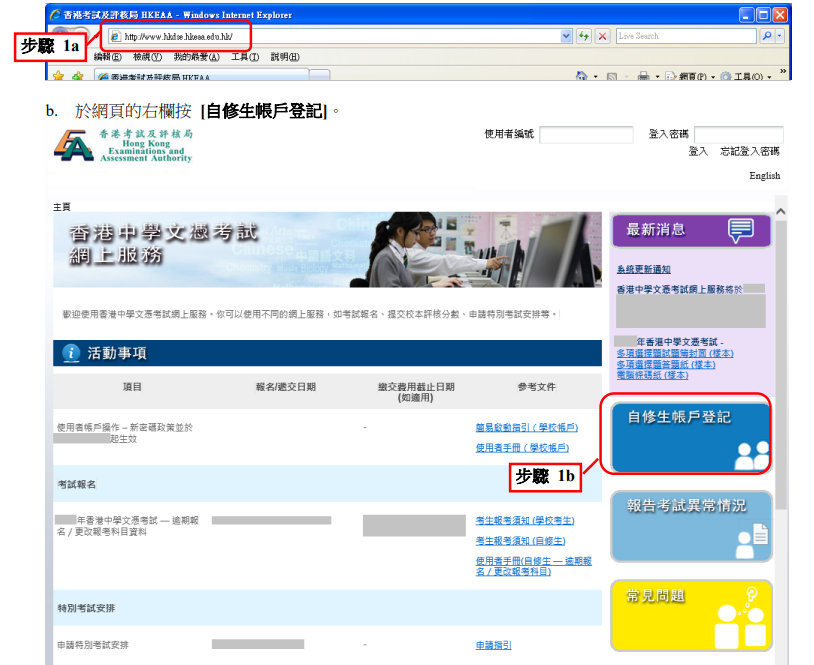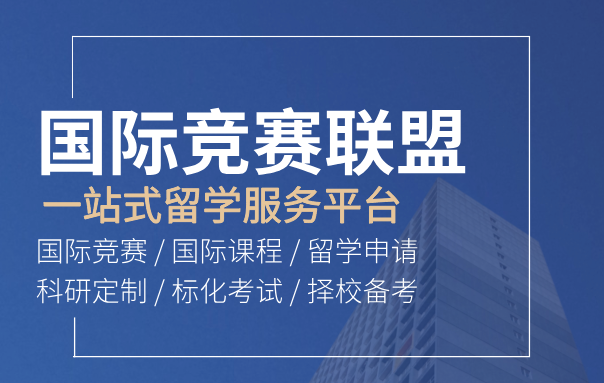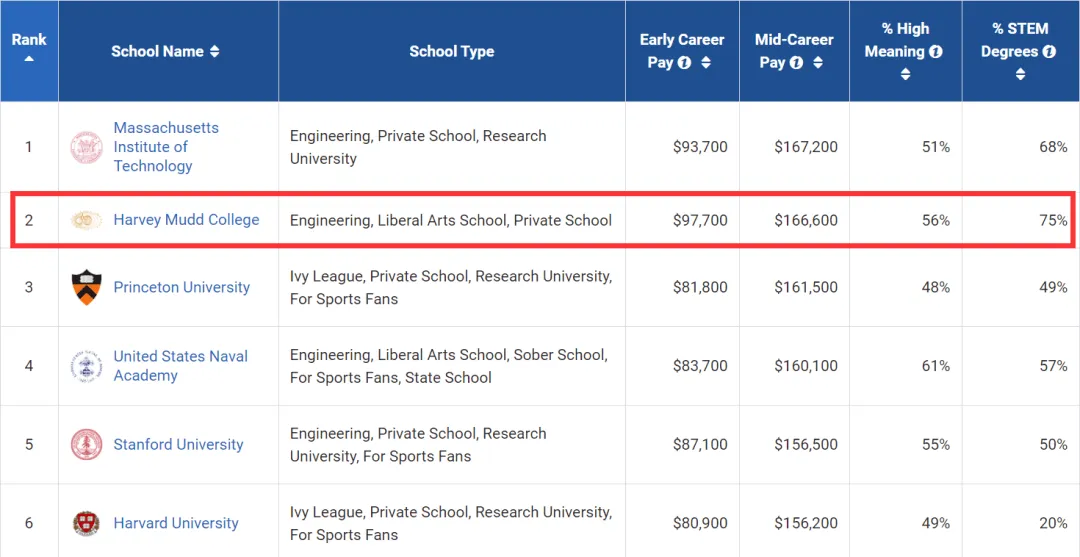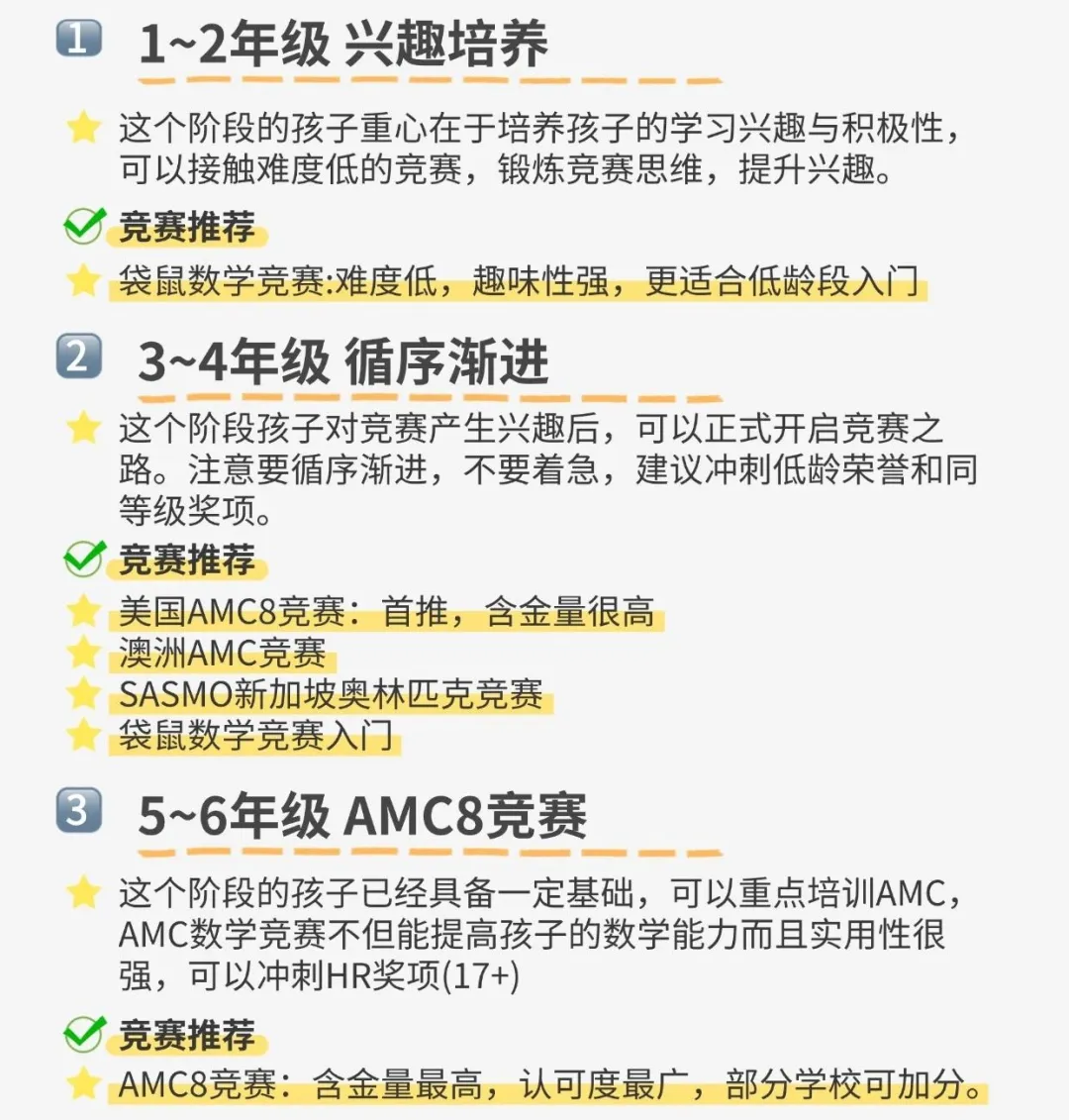今天,我们给大家准备了一些历年普林斯顿大学录取文书中的优秀写作范例,给大家参考学习。当中的每一篇文书,申请者都通过自己的讲述方式向招生官传达了自身性格、价值观和生活与普林斯顿大学相符的地方。
内容篇幅较长,还请大家耐心观看。接下来,就让我们来一起看看能让招生官怦然心动的“5篇普林斯顿大学优秀范文”吧。
01普林斯顿大学新生范文
英文原文
“I am a mother and mothers don’t have the luxury of falling apart in front of their children, even when they are afraid, even when their children are adults.” Kristin Hannah, The Nightingale.
My father was deployed to Afghanistan in the winter of 2009, and I remember two things about that day: my mother’s tears coating her lashes and the snowflakes coating mine. My dad was a specialist overseas, identifying and dismantling IEDs and other bomb-like configurations, but they dare not tell me that he was at risk of being blown up or killed every day. To me he was, and still is, my hero. But the war was fought at home, too; every day weighed upon my mom’s face like a decade. I was seven at the time, and my brother was almost four, so I understand why she kept so many secrets. But I am her person, her confidante, her mini-me, and I still saw, not everything, and many things I learned later, but I saw. I saw the pain in her face reading the mail, the bills. I saw her heart ache, I saw it bleed the snow that winter red.
The winter of 2010 was one of the worst in West Virginia’s recent history. The snow just kept coming; in droves, it filled our yard and driveway and window, over three feet of it. We could hardly walk outside, and frequently lost our dogs in the white sea of our backyard. That was the winter mom got sick.
My mother has only had the flu twice in her life, and this year, in spite of her shot, one of the worst strains braved the snow to reach her. Determined to hide her sickness from us, she spent hours shovelling the feet of snow, trying to escape for medicine and help. Her yellow ribbon on the gate swayed with each passing car, with no one stopping to help. By nightfall, she was exhausted; the snow had won. In her sickness, exhaustion, and emotional turmoil, she was dying.
So, she did what no mother would ever want to do: she broke down. In front of me. And asked if I could take care of my little brother for the evening. Make him food. Calm him down. Tuck him in.
She felt as if she had failed as a mother in that moment, asking so much of her seven- year-old daughter. But I stepped up to bat for her willingly.
The winter of 2010: the winter of a thousand snows and the winter of grilled cheese.
It was the only sustaining thing I could make, and my brother, Caden, and I ate them constantly. I can still hear mom cry from the kitchen as I prepared our meals. (I made her an extra. I do not know if she ever ate it.)
I tucked Caden into his train bed, put anextra Pull-Up on his nightstand, kissed his forehead. Mom got sick in the bathroom, so I quietly left her a note on her bed that said “I love you!” before heading off to my room.
2010 was a defining year for me. I began dance classes, saw my dad leave to fight for our country, felt the jubilation of his return. But my mother’s struggle permeates that year like the smell of burned popcorn. For the first time, I saw my mother, my invincible mother, weakened by life, and it humbled me. Her struggles made me want to work harder, be better, be stronger, for my family. That year, I vowed to serve my family in every way possible, and I try to even today. When I enter society as an adult, I want to be as strong and resilient as my parents, and to be empathetic toward everyone, even my enemies. Everyone has a story, a hardship, and no one, especially mothers, should feel ashamed to express it.
中文翻译
“我是一位母亲,母亲不会奢望在孩子面前崩溃,即使她们害怕,即使她们的孩子已经成年。”——克里斯汀·汉娜《夜莺》
2009年冬天,我父亲被派往阿富汗,我记得那天有两件事:母亲的泪水沾湿了她的睫毛,雪花也沾湿了我的睫毛。我父亲是一名海外专家,负责识别和拆除简易爆炸装置和其他类似炸弹的装置,但他们不敢告诉我,他每天都有被炸死或炸伤的危险。对我来说,他曾经是,现在仍然是我的英雄。但战争也是在家里打响的;每一天都像十年一样沉重地压在我母亲的脸上。当时我七岁,弟弟快四岁,所以我理解她为什么要保守那么多秘密。但我是她的人,她的知己,她的迷你我,我还是看到了,不是所有的事情,很多事情我后来才知道,但我看到了。我看到了她读信件和账单时脸上的痛苦。我看到了她的心痛,我看到了她的心在那个冬天被雪染红。
2010年的冬天是西弗吉尼亚州近代史上最糟糕的冬天之一。雪越下越大;成群结队,塞满了我们的院子、车道和窗户,积雪超过三英尺。我们几乎无法外出行走,后院的白茫茫一片中经常会跟丢我们的狗。就在那个冬天,妈妈生病了。
我母亲一生中只患过两次流感,今年,尽管她注射了流感疫苗,但最严重的一种流感病毒还是冒着大雪来到了她的身边。她决心向我们隐瞒病情,花了几个小时铲雪,试图逃出家门,寻求药物和帮助。她门上的黄丝带随着每一辆经过的汽车摇摆,却没有人停下来帮助她。夜幕降临时,她已经筋疲力尽,雪已经赢了。在病痛、疲惫和情绪波动中,她奄奄一息。
于是,她做了所有母亲都不愿意做的事:她崩溃了。在我面前。问我今晚能不能照顾弟弟。给他做吃的 安抚他 给他盖好被子
那一刻,她觉得自己作为母亲似乎很失败,对自己七岁的女儿要求太多。但我还是心甘情愿地站了出来。
2010 年的冬天:千雪之冬,烤奶酪之冬。
这是我唯一能做的维持生计的东西,我和弟弟凯顿不停地吃。我现在还能听到妈妈在厨房为我们做饭时的哭声。(我给她多做了一份,不知道她有没有吃)。
我把凯顿塞进他的火车床上,在他的床头柜上多放了一个拉拉裤,亲了亲他的额头。妈妈在浴室里生病了,我悄悄地在她的床上给她留了一张纸条,上面写着 “我爱你!”然后就回房间了。
2010 年对我来说是决定性的一年。我开始上舞蹈课,目送爸爸为国出征,感受他归来的喜悦。但母亲的挣扎就像烧焦的爆米花的味道一样弥漫在这一年。我第一次看到我的母亲,我不可战胜的母亲,被生活削弱了,这让我感到惭愧。她的挣扎让我想要更加努力,为了家人变得更好、更强大。那一年,我发誓要尽一切可能为家人服务,直到今天我仍在努力。成年后步入社会,我希望自己能像父母一样坚强不屈,对每个人都能感同身受,即使是我的敌人。每个人都有自己的故事,都有自己的苦难,任何人,尤其是母亲,都不应该因为表达自己的故事而感到羞耻。
02普林斯顿大学新生范文
英文原文
"I will be the gladdest thing under the sun! I will touch a hundred flowers and not pick one." - Edna St. Vincent Millay, "Afternoon on a Hill" (Renascence and Other Poems, 1917)
My teenage rebellion started at age twelve. Though not yet technically a teenager, I dedicated myself to the cause: I wore tee shirts with bands on them that made my parents cringe, shopped exclusively at stores with eyebrow- pierced employees, and met every comforting idea the world offered me with hostility. Darkness was in my soul! Happiness was a construct meant for sheep! Optimism was for fools! My cynicism was a product of a world that gave birth to the War in Afghanistan around the same time it gave birth to me, that shot and killed my peers in school, that irreversibly melted ice caps and polluted oceans and destroyed forests.
I was angry. I fought with my parents, my peers, and strangers. It was me versus the world.
However, there's a fundamental flaw in perpetual antagonism: it's exhausting. My personal relationships suffered as my cynicism turned friends and family into bad guys in my eyes. As I kept up the fight, I found myself always tired, emotionally and physically. The tipping point came one morning standing at the bathroom sink before school. I looked in the mirror and didn't recognize the tired, sad girl that looked back with pallid skin and purple eye bags. That morning, I found my mother and cried in her arms. I decided that the fight was over.
I took a break from fighting. I let go of my constant anger about global problems by first focusing on the local ones that I could do something about, and then learning to do things not because they fixed a problem, but for the simple joy of trying. I apologized to friends that I wronged previously, said yes when my mom asked me to go grocery shopping with her, and spent afternoons alone in the park, just reading. I baked brownies in the kitchen because it made me happy. I slept in on weekends when I could, but I also made an effort to get out of bed and move. I made an effort to be nice-optimistic, even-with the people around me, but more importantly, I made an effort to be nice to myself.
After a period of self-care, the fight in me recharged, but this time I didn't rush to spend it in anger. Now, it's a tool I use wisely. I've channeled it into tangible causes: I don't want the feeling of loneliness and anger to fester inside of anybody else, so I work with school administration to create community-building events for my senior class. From being the first to implement a class messaging system to starting a collaborative playlist with all 800 of my peers, I've turned my energy into positive change in my community.
I've still got a few more years of teenage angst in me, but the meaning of my rebellion has changed. It's not about responding to a world that's wronged me with defiance, anger, and cynicism, but about being kind to myself and finding beauty in the world so that I can stay charged and fight for the real things that matter.
I've realized that the world is my afternoon on a hill, full of sunlight and optimism if only I can see them. Now, I am the gladdest thing under the sun! I can be vulnerable and open, and I can show my passion to the world through love. I will touch a hundred flowers, seize a hundred opportunities, and love a hundred things. I will not pick just one.
中文翻译
“我要做太阳底下最快乐的人!我愿触碰百花,却不摘下一朵。”——埃德娜·圣文森特·米莱,《山上的午后》
我的青春叛逆期始于12岁。虽然严格意义上讲,我还不是青少年,但我献身于这一事业:我穿着印有乐队图案的 T 恤,这些图案让我的父母感到恐惧;我只在有穿眉毛的员工的商店购物;我对这个世界提供给我的每一个令人欣慰的想法都充满敌意。我的灵魂深处充满了黑暗!幸福是为绵羊准备的!乐观是给傻瓜准备的!我的愤世嫉俗是这个世界的产物,它在孕育我的同时也孕育了阿富汗战争,它枪杀了我在学校里的同龄人,它不可逆转地融化了冰盖,污染了海洋,毁坏了森林。
我很愤怒。我与父母、同龄人和陌生人争吵。这是我与世界的较量。
然而,长期对立有一个根本性的缺陷:它让人精疲力竭。我的愤世嫉俗把朋友和家人变成了我眼中的坏人,我的人际关系也因此受到影响。在我不断抗争的过程中,我发现自己总是很累,无论是情感上还是身体上。临界点出现在一天早上上学前,我站在浴室的水池边。我看着镜子里的自己,已经认不出那个疲惫、悲伤、皮肤苍白、眼袋发紫的女孩了。那天早上,我找到妈妈,在她怀里哭了起来。我决定结束这场争吵。
我暂停了战斗。我放下了对全球问题的持续愤怒,首先关注我可以做些什么的本地问题,然后学会做事,不是因为它们能解决问题,而是因为尝试的简单快乐。我向以前错怪过的朋友道歉,在妈妈叫我一起去买菜时答应了她,一个人在公园里看书,度过了一个又一个下午。我在厨房烘焙巧克力蛋糕,因为这让我感到快乐。周末能睡懒觉的时候我就睡懒觉,但我也努力下床活动。我努力对周围的人好,甚至是乐观,但更重要的是,我努力对自己好。
经过一段时间的自我保健,我体内的斗志又重新燃起,但这次我没有急于把它用在愤怒上。现在,它成了我明智使用的工具。我把它转化为具体的事业:我不希望孤独和愤怒的感觉在其他人身上发酵,因此我与学校管理部门合作,为高三班级举办社区建设活动。从第一个实施班级短信系统,到与所有800名同学一起创建合作播放列表,我将自己的能量转化为社区的积极变化。
我还有几年的青春期,但我叛逆的意义已经改变。它不是用反抗、愤怒和愤世嫉俗来回应这个让我蒙受损失的世界,而是善待自己,发现世界的美好,这样我才能保持充沛的精力,为真正重要的事情而奋斗。
我已经意识到,世界就是我山丘上的午后,充满阳光和乐观,只要我能看到它们。现在,我是阳光下最快乐的人!我可以脆弱,可以坦然,可以通过爱向世界展示我的热情。我要触摸百花,抓住百机,热爱百物。我不会只选一样。
03普林斯顿大学新生范文
英文原文
In 7th grade, I was assigned a research project. Although I didn't know it at the time, this project would end up sparking an interest which would guide me throughout the rest of my public school career. The project was simple: using Google and other resources, I had to find a potential career I'd be interested in pursuing later in life. Being a naive 7th grader, I had virtually no idea where to start. I knew I had a strong preference for STEM, but as to which area of STEM to pursue, I was clueless. After looking at a myriad of other careers, I finally came across aerospace engineering.
At first, I was intrigued by the name. I remember thinking that it sounded awesome, and I was compelled to learn more. Fast forward a few days and many hours of research, and aerospace engineering stole my heart. When I got to high school, I took all of the classes my school offered that would be beneficial for an aerospace engineer. AP Physics, Multivariable Calculus, PLTW engineering courses, and countless others made the list, and all the while my desire to become an aerospace engineer intensified. I joined numerous STEM clubs to nurture this interest, and in doing so I not only became a better engineer, but also a better person. I also began looking into outstanding aerospace colleges, and Princeton made the very top of my list.
When I look back on it now, I'm not surprised that aerospace engineering is what called to me in that project. In fact, I've been fascinated with planes and rockets since a very young age! I would often build models out of LEGOs, and there are numerous times I spent way too many hours playing Kerbal Space Program. When I discovered there was a career dedicated to those parts of my personality, it makes sense that I'd be drawn to it. I find it fascinating that just by using the arsenals of math and science, we can fabricate every tool needed to explore and catalog the cosmos. If that isn't powerful, I don't know what is.
Although aerospace engineering has been my main interest throughout high school, I've also felt a pull towards mechanical engineering and robotics. Princeton is unique in that it offers a joint major in mechanical AND aerospace engineering, which is something I haven't seen at any other school. In addition, Princeton's certificate program in Robotics and Intelligent Systems will allow me to pursue robotics in the context of aerospace engineering. In particular, if I am admitted to Princeton University, I would love to have the opportunity to conduct research in the Intelligent Robot Motion Lab. The IRoM- Lab's focus on how robots function in complex environments safely and efficiently has me especially excited, and I've come up with a few ideas of my own to be pursued. Engineering is the driving force behind progress in society, and I am willing to do everything I can to contribute to that progress.
中文翻译
七年级时,我被分配了一个研究项目。虽然当时我并不知道,但这个项目最终激发了我的兴趣,并在我接下来的公立学校生涯中一直指引着我。这个项目很简单:利用谷歌和其他资源,我必须找到一个我日后有兴趣从事的潜在职业。作为一个天真的七年级学生,我几乎不知道从哪里开始。我知道自己对科技、工程和数学有着强烈的偏好,但至于从事哪个领域的科技、工程和数学,我却毫无头绪。在看了无数其他职业之后,我终于接触到了航空航天工程。
起初,我被这个名字所吸引。我记得当时我觉得这个名字听起来棒极了,于是我迫不及待地想了解更多。经过几天和几个小时的研究,航空航天工程俘获了我的心。上高中后,我选修了学校开设的所有对航空航天工程师有益的课程。AP物理、多元微积分、PLTW工程课程以及数不胜数的其他课程都在我的选修之列。为了培养这种兴趣,我加入了许多 STEM 俱乐部,这样我不仅成为了一名更好的工程师,也成为了一个更好的人。我也开始关注优秀的航空航天大学,普林斯顿大学名列前茅。
现在回想起来,我一点也不惊讶航空航天工程对我的吸引力。事实上,我从小就对飞机和火箭着迷!我经常用乐高积木搭建模型,还曾多次花太多时间玩 “开伯尔太空计划”(Kerbal Space Program)。当我发现有一种职业专门针对我性格中的这些部分时,我被它吸引也就在情理之中了。我发现,只要利用数学和科学的武器库,我们就能制造出探索宇宙和编制宇宙目录所需的一切工具,这太令人着迷了。如果这还不算强大,我不知道什么才算强大。
虽然航空航天工程是我整个高中阶段的主要兴趣所在,但我也对机械工程和机器人学产生了浓厚的兴趣。普林斯顿大学的独特之处在于,它提供机械和航空航天工程的联合专业,这是我在其他学校没有见过的。此外,普林斯顿大学的机器人与智能系统证书课程将使我能够在航空航天工程的背景下学习机器人技术。特别是,如果我被普林斯顿大学录取,我希望有机会在智能机器人运动实验室开展研究。IRoM-实验室关注机器人如何在复杂环境中安全高效地运行,这让我特别兴奋,我已经有了一些自己的想法,希望能继续研究。工程学是社会进步的推动力,我愿意尽我所能为社会进步做出贡献。
04普林斯顿大学新生范文
英文原文
My parents had asked me if I wanted to come along, and I agreed. We got there; we took pictures next to a giant tennis ball, bought some tennis rackets, and finally headed over to our seats. It was absolutely freezing—and as the match continued, the world around me got darker and darker. An open stadium, I could see the stars in the sky just as clearly as I could feel the cold seeping through my coat. Trying to forget about my discomfort, I gazed up at the stars and listened to the vaguely muffled sounds of grunts and balls hitting the court.
A million things ran through my head.
The persistent cold that I was trying to forget. The beauty of the twinkling lights in the sky. The vast emptiness of the world around me.
And, even as I pulled closer to my mom and dad, an abject feeling of loneliness settled over me, my isolation from the excitement of the crowd making itself apparent as I felt none of the frustration, disappointment, or adrenaline-fuelled excitement that the crowd and the players were feeling—a million miles away from my surroundings, insignificant in this moment.
And, it dawned on me, I am. I am insignificant—we all are. Even the tennis players whom we so eagerly watch are only really significant for the few hours of their game—and, is that insignificance necessarily a bad thing? Why should I pursue significance—and essentially, recognition—throughout my life? Why do I feel the need to be recognized? Should I not just want to aid in world progress—whether that be dancing to promote emotional expression, or engineering to promote prosperity and scientific advancement?
I began to understand the futility of ambition revolving solely around world recognition.
Why should the entire world know my name? Shouldn't success be just knowing that I created something, something that helped someone or something somewhere, something that advanced the face of knowledge or innovation, regardless of whether I gained actual ‘credit’ for it?
Having changed my definition of success, I no longer search for significance. My absolute insignificance has never been clearer, clearing the way for me to discover myself in my passions, rather than discovering passions in the hope of gaining relevance. My success is no longer defined by the approval or recognition of anyone but myself, making my successes sweeter and my hard work more gratifying. This leaves no bar on my dreams, no curb on my goals. I'm an aspiring engineer because I love how math and physics and purpose click together as you design and invent and innovate, how the electricity of passion sparks through my fingertips as I stay up late working on my model rockets and deriving simple harmonic equations. I'm a dancer because I love how the music and movements feel in my muscles and bones, how fiery adrenaline rushes through my veins when I am in the middle of a performance. I'm a hopeful social entrepreneur because I want to give purpose to my innovations; I'm a singer because I like to feel the vibrations of songs collecting in my throat; I'm a programmer because I like to ‘logic’ my way through problems. None of its for money, or for a prize, or for world recognition—because even that significance doesn't last long. I'm insignificant, and whether or not I remain so—as long as I fulfill my own purpose and achieve my own goals—it makes no difference to me.
中文翻译
父母问我要不要一起去,我同意了。我们到了那里,在一个巨大的网球旁边照了相,买了一些网球拍,最后走向我们的座位。比赛还在继续,我周围的世界变得越来越黑暗。在一个开放的体育场里,我可以清楚地看到天上的星星,同时也能感觉到寒冷从我的大衣里渗了出来。我努力忘却身体的不适,仰望星空,聆听隐约传来的咕噜声和球撞击球场的声音。
我的脑海中闪过无数个念头。
我试图忘记持续的寒冷。天空闪烁的灯光美不胜收。周围世界的广袤空旷。
即使我拉近了与爸爸妈妈的距离,一种赤裸裸的孤独感还是笼罩着我,我与激动人心的人群的隔绝感显而易见,因为我感受不到人群和球员们所感受到的沮丧、失望或肾上腺素飙升的兴奋--我与周围的环境相差十万八千里,在这一刻微不足道。
我恍然大悟,我就是这样的人。我是微不足道的,我们都是。即使是我们热切关注的网球运动员,他们的真正意义也只是在比赛的几个小时里,而这种渺小一定是坏事吗?我为什么要终其一生追求意义--本质上就是追求认可?为什么我觉得有必要得到认可?难道我不应该只想帮助世界进步吗--无论是通过舞蹈来促进情感表达,还是通过工程来促进繁荣和科学进步?
我开始明白,仅仅围绕世界认可的抱负是徒劳无益的。
为什么要让全世界都知道我的名字?难道成功不应该只是知道我创造了什么,帮助了某个人或某件事,推动了知识或创新的发展,而不管我是否因此获得了实际的 “荣誉” 吗?
在改变了对成功的定义之后,我不再寻找意义。我的绝对渺小从未如此清晰,这为我在激情中发现自己,而不是为了获得相关性而发现激情扫清了道路。除了我自己,我的成功不再由任何人的认可或承认来定义,这让我的成功更加甜蜜,让我的辛勤工作更加令人欣慰。这让我的梦想不再受限,目标不再受阻。我是一名有抱负的工程师,因为我喜欢在设计、发明和创新的过程中,数学、物理和目标是如何结合在一起的;当我熬夜制作火箭模型和推导简单的谐波方程式时,我的指尖是如何迸发出激情的火花。
我是一名舞蹈家,因为我喜欢音乐和动作在我肌肉和骨骼中的感觉,喜欢当我在表演中时,火热的肾上腺素在我血管中奔腾。我是一名充满希望的社会企业家,因为我想为我的创新赋予目标;我是一名歌手,因为我喜欢感受歌声在我喉咙里汇聚的振动;我是一名程序员,因为我喜欢用 “逻辑” 的方式解决问题。这一切都不是为了金钱、奖项或世界的认可,因为即使是这样的意义也不会持续太久。我很渺小,无论我是否仍然渺小,只要我实现了自己的目的,达到了自己的目标,对我来说都没有什么区别。
05普林斯顿大学新生范文
英文原文
“One of the great challenges of our time is that the disparities we face today have more complex causes and point less straightforwardly to solutions.” Omar Wasow, assistant professor of politics, Princeton University. This quote is taken from Professor Wasow’s January 2014 speech at the Martin Luther King Day celebration at Princeton University.
The air is crisp and cool, nipping at my ears as I walk under a curtain of darkness that drapes over the sky, starless. It is a Friday night in downtown Corpus Christi, a rare moment of peace in my home city filled with the laughter of strangers and colourful lights of street vendors. But I cannot focus.
My feet stride quickly down the sidewalk, my hand grasps on to the pepper spray my parents gifted me for my sixteenth birthday. My eyes ignore the surrounding city life, focusing instead on a pair of tall figures walking in my direction. I mentally ask myself if they turned with me on the last street corner. I do not remember, so I pick up the pace again. All the while, my mind runs over stories of young women being assaulted, kidnapped, and raped on the street. I remember my mother’s voice reminding me to keep my chin up, back straight, eyes and ears alert.
At a young age, I learned that harassment is a part of daily life for women. I fell victim to period-shaming when I was thirteen, received my first catcall when I was fourteen, and was non-consensually grabbed by a man soliciting on the street when I was fifteen. For women, assault does not just happen to us— its gory details leave an imprint in our lives, infecting the way we perceive the world. And while movements such as the Women’s March and #MeToo have given victims of sexual violence a voice, harassment still manifests itself in the lives of millions of women across the nation. Symbolic gestures are important in spreading awareness but, upon learning that a surprising number of men are oblivious to the frequent harassment that women experience, I now realize that addressing this complex issue requires a deeper level of activism within our local communities.
Frustrated with incessant cases of harassment against women, I understood at sixteen years old that change necessitates action. During my junior year, I became an intern with a judge whose campaign for office focused on a need for domestic violence reform. This experience enabled me to engage in constructive dialogue with middle and high school students on how to prevent domestic violence. As I listened to young men uneasily admit their ignorance and young women bravely share their experiences in an effort to spread awareness, I learned that breaking down systems of inequity requires changing an entire culture. I once believed that the problem of harassment would dissipate after politicians and celebrities denounce inappropriate behaviour to their global audience. But today, I see that affecting large-scale change comes from the “small” lessons we teach at home and in schools. Concerning women’s empowerment, the effects of Hollywood activism do not trickle down enough. Activism must also trickle up and it depends on our willingness to fight complacency.
Finding the solution to the long-lasting problem of violence against women is a work- in-progress, but it is a process that is persistently moving. In my life, for every uncomfortable conversation that I bridge, I make the world a bit more sensitive to the unspoken struggle that it is to be a woman. I am no longer passively waiting for others to let me live in a world where I can stand alone under the expanse of darkness on a city street, utterly alone and at peace. I, too, deserve the night sky.
中文翻译
“我们这个时代面临的巨大挑战之一是,我们今天所面临的差距有着更加复杂的原因,而且并不那么直截了当地指向解决方案”。奥马尔·瓦索,普林斯顿大学政治学助理教授。这段话摘自瓦索教授2014年1月在普林斯顿大学马丁·路德·金纪念日庆祝活动上的演讲。
空气清冽凉爽,咬着我的耳朵,我走在黑暗的幕布下,天空中没有星星。这是在科珀斯克里斯蒂市中心的一个周五晚上,在我的家乡,这是一个难得的宁静时刻,到处都是陌生人的笑声和街头小贩五颜六色的灯光。但我无法集中注意力。
我的脚在人行道上快步走着,手紧紧抓住父母在我16岁生日时送给我的辣椒喷雾器。我的眼睛忽略了周围的城市生活,而是注视着向我走来的一对高大身影。我在心里问自己,他们是否在上一个街角和我一起拐弯。我不记得了,于是又加快了脚步。与此同时,我的脑海中不断浮现出年轻女性在街头被殴打、绑架和强奸的故事。我记得母亲的声音在提醒我,要抬起下巴,挺直脊背,眼观六路,耳听八方。
在我很小的时候,我就知道骚扰是女性日常生活的一部分。十三岁时,我成了经期羞辱的受害者;十四岁时,我第一次被猫叫;十五岁时,我在街上被一个拉客的男人非自愿地抓住。对女性来说,攻击并不只是发生在我们身上,其血淋淋的细节会在我们的生活中留下烙印,影响我们感知世界的方式。虽然 “妇女大游行” 和 “#MeToo” 等运动让性暴力的受害者有了发声的机会,但骚扰仍然存在于全国数百万女性的生活中。象征性的姿态对于传播意识很重要,但当我了解到,令人惊讶的是,很多男性对女性经常遭受的骚扰视而不见时,我现在意识到,要解决这个复杂的问题,需要我们在当地社区开展更深层次的活动。
由于对不断发生的骚扰妇女案件感到沮丧,16岁的我明白,要想改变现状,就必须采取行动。大三那年,我成为了一名法官的实习生,他竞选公职的重点是需要进行家庭暴力改革。这段经历让我能够与初中和高中学生就如何预防家庭暴力进行建设性对话。当我聆听年轻男性不安地承认他们的无知,以及年轻女性勇敢地分享他们的经历以提高人们的意识时,我了解到打破不公平的制度需要改变整个文化。我曾一度认为,在政客和名人向他们的全球受众谴责不当行为之后,骚扰问题就会烟消云散。但今天我看到,影响大规模变革的因素来自于我们在家庭和学校中教授的 “小” 课程。在妇女赋权方面,好莱坞行动主义的影响还不够深入。激进主义还必须向上渗透,而这取决于我们是否愿意与自满情绪作斗争。
解决长期存在的暴力侵害妇女问题是一项进行中的工作,但这是一个不断前进的过程。在我的生活中,每进行一次令人不舒服的对话,我都会让这个世界对身为女性的无言挣扎更加敏感一些。我不再被动地等待他人让我生活在这样一个世界里:我可以独自站在城市街道上的大片黑暗中,完全孤独而平静。我也应该拥有夜空。
由于篇幅限制,本文先跟大家分享5篇普林斯顿大学的优秀范文。










